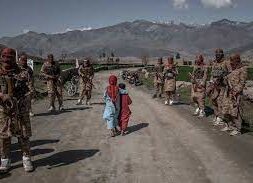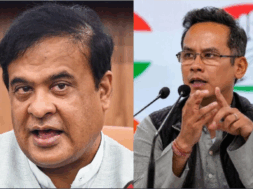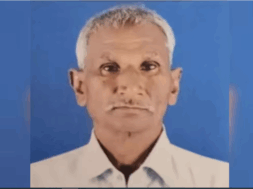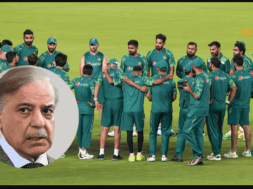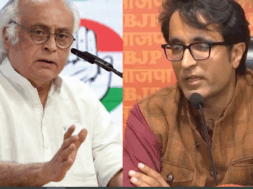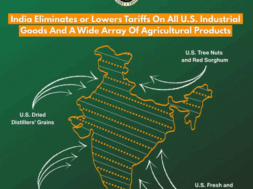
Afghanistan: Government Gives “Power-Sharing Offer” to Taliban to End Fighting
Manas Dasgupta
NEW DELHI, Aug 12: As the Taliban kept inching close to the national capital of Kabul, much faster than the earlier speculations, the Afghanistan government is learnt to have given a power-sharing offer to the militant group to bring an end to the fighting on the streets.
“The Afghan government negotiators in Qatar have offered the Taliban a power-sharing deal in return for an end to fighting in the country,” a government source said on Thursday.
The offer apparently was given after the news came that the Taliban earlier in the day had seized the strategic Afghan city of Ghazni, just about 130 kilometers southwest of Kabul, their most important gain in a lightning offensive that has seen them overrun 10 provincial capitals in a week.
According to the media reports, the militants raised their white flags imprinted with an Islamic proclamation of faith over the city of Ghazni. Sporadic fighting continued at an intelligence base and an army installation outside the city, local officials said.
The interior ministry confirmed the fall of the city, which lies along the major Kabul-Kandahar highway and serves as a gateway between the capital and militant strongholds in the south.
“The enemy took control,” spokesman Mirwais Stanikzai said in a message to media, adding later the city’s governor had been arrested by Afghan security forces.
Pro-Taliban Twitter feeds showed video of him being escorted out of Ghazni by Taliban fighters and sent on his way in a convoy, prompting speculation in the capital that the government was angered with how the provincial administration capitulated.
The US intelligence had earlier speculated that it might take about three months for the Taliban to take control of Kabul but the militants seemed to be closing in to the national capital at a much faster pace with government forces fast losing control of the provincial capitals one after another.
As security forces retreated across the country, Kabul handed a proposal to Taliban negotiators in Qatar offering a power-sharing deal in return for an end to fighting, a member of the government’s team in Doha said.
A second negotiator, Ghulam Farooq Majroh, said the Taliban had been given an offer about a “government of peace” without providing more specifics.
Authorities in Kabul have now effectively lost most of northern and western Afghanistan and are left holding a scattered archipelago of contested cities also dangerously at risk of falling to the Taliban.
The conflict has escalated dramatically since May, when US-led forces began the final stage of a troop withdrawal due to end later this month after 20-years of occupation.
The loss of Ghazni will likely pile more pressure on the country’s already overstretched air force, needed to bolster Afghanistan’s dispersed security forces who have increasingly been cut off from reinforcements by road.
Pro-Taliban social media accounts also boasted of the vast spoils of war their fighters had recovered in recent days, posting photos of armoured vehicles, heavy weapons, and even a drone seized by the insurgents at abandoned Afghan military bases.
In less than a week the insurgents have taken 10 provincial capitals and encircled the biggest city in the north, the traditional anti-Taliban bastion of Mazar-i-Sharif.
Fighting was also raging in Kandahar and Lashkar Gar — pro-Taliban heartlands in the south — as well as Herat in the west.
An official in Lashkar Gar said Taliban fighters were inching closer to government positions after a massive car bomb badly damaged the city’s police headquarters Wednesday evening.
The blast forced local police to retreat to the governor’s office, while around 40 of their colleagues and one senior commander surrendered to the Taliban.
And in Kandahar, the Taliban said they had overrun the heavily fortified jail, saying “hundreds of prisoners were released and taken to safety.”
The Taliban frequently target prisons to release incarcerated fighters and replenish their ranks.
The loss of the prison is a further ominous sign for the country’s second city, which has been besieged for weeks by the Taliban.
Kandahar was once the stronghold of the Taliban — whose forces coalesced in the eponymously named province in the early 1990s — and its capture would serve as both a tactical and psychological victory for the militants.
Hundreds of thousands have been displaced by the fighting that has enveloped the country. In recent days, Kabul has been swamped by the displaced, who have begun camping out in parks and other public spaces, sparking a fresh humanitarian crisis in the already overtaxed capital.
In Washington, defence officials appeared to be grappling with the spiralling situation but insisted that Afghan security forces were still holding their ground. “What we’re seeing, a deteriorating security situation, we’ve been nothing but candid about that,” Pentagon spokesman John Kirby told reporters Wednesday.
“But there are places and there are times, including today, where Afghan forces in the field are putting up a fight.”
France halted expulsions of migrants to Afghanistan in early July because of the worsening security situation there, a spokeswoman for the Interior Ministry told Reuters on Thursday. The spokeswoman also told the agency that France
“We are closely monitoring developments, we’re concerned about deteriorating security situation. Our Mission in Kabul issued an advisory for Indian nationals earlier this week, advising them to return to India via commercial flights,” an MEA spokesperson said during a briefing on Thursday.
“Our Mission in Kabul continues to remain in touch with Afghan Hindu and Sikh community members and we will ensure provision of all necessary assistance to them,” he added.
Taking a dig at the US, the Pakistani Prime Minister Imran Khan has said Washington sees Pakistan as “useful” only for clearing the “mess” it has left behind in Afghanistan after 20 years of fighting and prefers India when it comes to forming a “strategic partnership”.
“Pakistan is just considered only to be useful in the context of somehow settling this mess which has been left behind after 20 years of trying to find a military solution when there was not one,” Khan said. He also said since US decided to have a “strategic partnership” with India, Washington was treating Pakistan differently.
The Afghanistan government has raised with the international community concerns of the government and its people on Taliban’s brutal attacks on cities, leading to war crimes and human rights violations, the Ministry of Foreign Affairs said in a statement.
“During a meeting with Extended Troika meeting with the participation of Russia, the US, China, and Pakistan, Afghanistan called on the international community, especially the Troika meeting member states, to adopt serious measures to prevent Taliban attacks on cities,” the statement adds.
